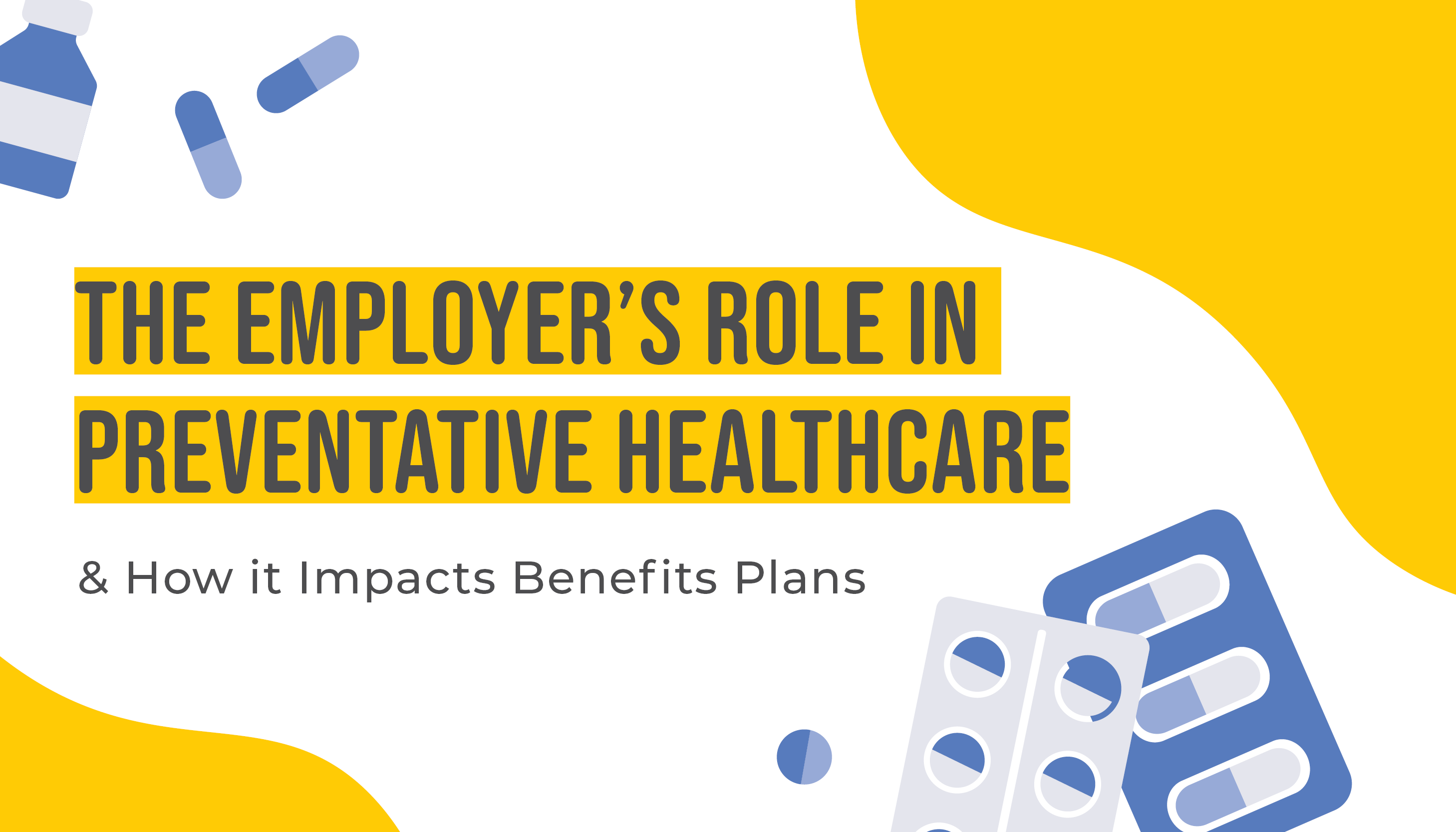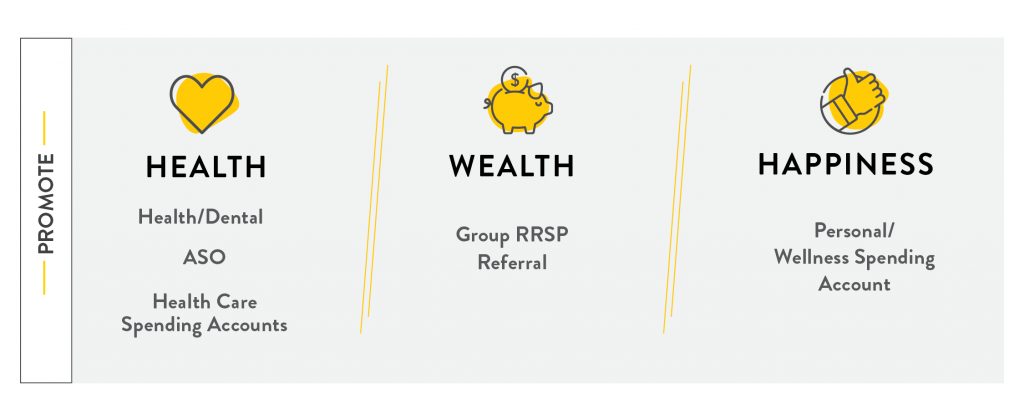The Employer’s Role in Preventative Healthcare & How it Impacts Benefits Plans
By: Benefits by Design | Tuesday September 21, 2021
Updated : Monday January 29, 2024
If you could decrease the risk of serious illness, disability, or injury for yourself and your employees… wouldn’t you?
That’s what preventative care can provide. But what is the employer’s responsibility in all of this? Working Canadians agree — employers are expected to play a role in keeping employees healthy. Preventative care is an effective method in doing so, and is significantly advantageous for the employer in the long term through cost-savings, employee happiness, productivity, and more.
What is Preventative Healthcare?
Preventative healthcare aims to keep people healthy in the long term and decrease the burden of serious and costly illnesses, diseases, and risk factors through healthy habits and lifestyles that promote overall health.
You can think of preventative healthcare like spending money on fixing an older, potentially leaky roof now, instead of doing nothing and spending heaps on replacement and repairs from water damage when it finally breaks.
Preventative Health Care in Benefits Plans
Preventative healthcare is a part of many of the most common and sought-after employee benefits coverages, including:
- Extended Health Care (EHC), which provides access to prescription medications, medical practitioners, and other coverages that supplement provincial healthcare plans.
- Dental Insurance, which facilitates good oral health at a time when studies are increasingly showing links between oral health and overall health.
- Personal Spending Accounts (PSA)s, which offer a wide array of health and wellness coverages for employees aimed at keep them happy, active, and healthy.
- Employee Assistance Programs (EAP)s, which offers support and resources through professional counselling services to employees struggling with all manner of mental health issues, including anxiety, depression, marital or financial problems, and more.

Here’s an example of some of the coverages we categorize into the “Promote” part of benefits. These coverages keep employees healthy over the long term through access to care, professional practitioners, prescriptions, and health and wellness products that promote an active lifestyle.
How Preventative Healthcare Impacts Benefits Plans
Think about it this way — few companies get into business with the intent not to be around in ten or twenty years, and employees are going to be driving your success forward. In which case, an employee benefits plan is a long term investment in the overall health of your employees and your company, right?
That’s why we’re talking about preventative healthcare. It can have a significant impact on an employee benefits plan over the long term. Here’s how:
Frequency of Claims
Employees with generally unhealthy or inactive lifestyles make more frequent, larger claims on benefits plans. Both frequency and cost of claims have a great impact on benefits plans premiums, so keeping employees healthier also keeps costs down for both employers and employees.
Severity of Claims
Unhealthy or inactive employees are also more prone to chronic conditions like obesity, diabetes, heart disease, stroke, and even cancers. These chronic conditions can lead to increased claims activity for coverages like Critical Illness and Disability Insurance. Likewise, expensive prescription medications may be required, hitting your benefits plan and impacting rates further.
What’s more, those absences from work impact your business and your employees in more ways than one. You’ll lose valuable employees and their knowledge while they are on leave for recovery.
Preventative Healthcare Lowers Claims Frequency and Severity
Preventative healthcare isn’t about spending less on benefits, or even keeping employees from making claims (that’s what the plan is for after all). Instead, it’s about encouraging employees to lead healthy, active lifestyles. The positive impacts on a benefits plan is a bonus.
What You Need to Submit Medical Claims Under a Group Insurance Plan
How Can Employers Encourage Preventative Healthcare?
Employers can encourage healthy and active lifestyles for employees without breaking the bank, and the best way to do this is to lead by example. Here’s a few ideas:
- Encourage utilization of the benefits plan. Many aspects of an employee benefits plan focus on preventative healthcare, such as paramedical practitioners like nutritionists or physiotherapists, or dental check-ups and cleaning to maintain good oral health.
- Walking meetings. Having a discussion with a few coworkers? Rather than sitting down at a conference table, take a walk around the building, or to a nearby coffee shop!
- Provide healthy snacks in the breakroom. Fruit, vegetables, trail mix — when employees get snacky in the afternoon, they can munch on healthy alternatives.
- Offer desk alternatives. Sitting is the new smoking, so offering desk alternatives, like standing or treadmill desks, is a great way to encourage activity among employees.


